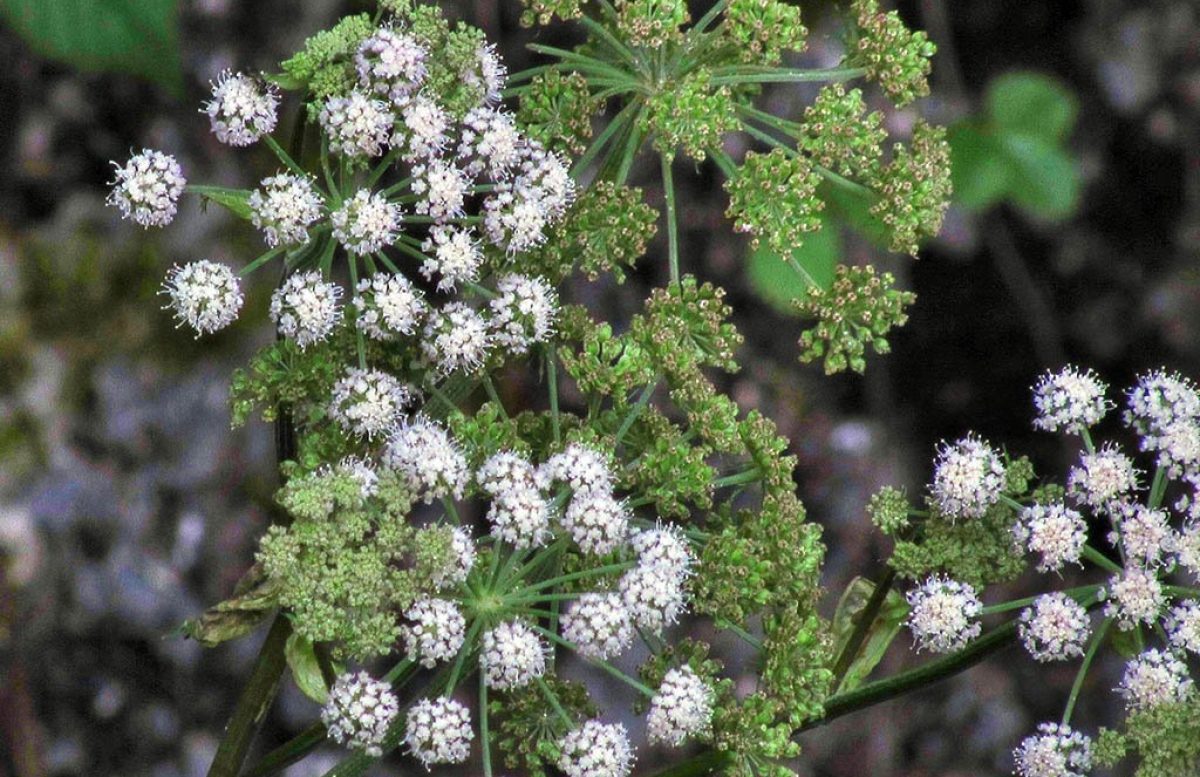In the realm of herbal medicine, there are countless treasures from nature that offer both physical and spiritual benefits. One such herb is angelica (Angelica archangelica), also known as the “root of the Holy Ghost” or the “herb of angels.” With its rich history in folklore, powerful herbal actions, and spiritual references, angelica is a captivating herb that deserves our attention. In this blog, we will delve into the fascinating world of angelica, exploring its herbal actions, folklore, energetics, and spiritual significance.
Herbal Actions:
Angelica is a perennial plant that belongs to the Apiaceae family. It is native to Europe and has been used in traditional herbal medicine for centuries. The root of the angelica plant is primarily employed for its medicinal properties. Here are some of the key herbal actions associated with angelica:
- Digestive Aid: Angelica possesses carminative properties, helping to ease digestive discomfort, reduce gas and bloating, and improve overall digestion.
- Nervine Tonic: This herb has a calming effect on the nervous system, making it useful for relieving stress, anxiety, and tension.
- Expectorant: Angelica has expectorant properties, making it beneficial for respiratory conditions such as coughs, bronchitis, and congestion.
- Circulatory Stimulant: Angelica acts as a circulatory stimulant, promoting blood flow and supporting cardiovascular health.
Folklore and Mythology:
Throughout history, angelica has been surrounded by captivating folklore and mythical tales. The plant’s name itself, “angelica,” is derived from the belief that it holds divine powers and was bestowed upon humanity by angels. Here are a few fascinating folklore references associated with angelica:
- Protection Against Evil: In European folklore, angelica was believed to possess protective qualities against evil spirits, witchcraft, and negative energies. It was often used in talismans, charms, and herbal baths to ward off evil and bring good luck.
- Herb of the Holy Ghost: Angelica earned its title as the “root of the Holy Ghost” due to its connection to the archangel Raphael. According to Christian legend, angelica was revealed to a monk in a dream as a cure for the bubonic plague, further enhancing its sacred reputation.
- Guardian of the Garden: In ancient times, angelica was planted around homes and gardens to protect against malevolent spirits and enhance the vitality of other plants.
Energetics and Spiritual Significance:
Beyond its physical attributes, angelica is revered for its energetic and spiritual significance. Here’s a glimpse into the herb’s spiritual associations:
- Vitality and Strength: Angelica is believed to possess a warm and invigorating energy. Its aromatic nature is thought to uplift the spirit, boost vitality, and restore balance to the body and mind.
- Connecting with Divine Energies: In various spiritual practices, angelica is used to open channels of communication with higher realms. It is believed to enhance intuition, facilitate meditation, and deepen spiritual experiences.
- Protection and Purification: Angelica is considered a powerful protective herb that helps clear negative energy and promote spiritual purification. It is often used in smudging, rituals, and spiritual baths.
ANGELICA (Angelica archangelica)
Family: Apiaceae (Umbelliferae)
Parts Used: Root, Stem, Leaves, Seeds
Taste: Bitter, Pungent
Herbal Actions: Carminative, Diaphoretic, Digestive, Expectorant, Nervine, Emmenagogue, Antispasmodic, Immunomodulator
Affinities: Digestive System, Respiratory System, Nervous System, Female Reproductive System
Digestive System: Angelica has a long history of use as a digestive herb. It acts as a carminative, helping to relieve digestive discomfort, bloating, and flatulence. Angelica stimulates digestion, improves appetite, and supports the overall function of the digestive system. It is particularly useful for addressing sluggish digestion, indigestion, and symptoms related to poor assimilation of nutrients.
Respiratory System: Angelica has expectorant properties, making it beneficial for respiratory conditions such as coughs, bronchitis, and congestion. It helps to promote the expulsion of mucus from the respiratory tract, making breathing easier. Angelica’s warming and stimulating properties also aid in opening up the airways and relieving chest tightness.
Nervous System: Angelica has a calming effect on the nervous system and is considered a nervine herb. It helps to relieve nervous tension, anxiety, and stress. Angelica’s soothing properties make it useful for promoting relaxation, improving sleep quality, and reducing symptoms of nervous exhaustion. It is often used as a supportive herb for individuals experiencing emotional imbalances or nervous disorders.
Female Reproductive System: Angelica is known for its affinity for the female reproductive system. It is considered an emmenagogue, which means it helps to stimulate and regulate menstrual flow. Angelica can be used to address menstrual irregularities, menstrual cramps, and hormonal imbalances. It is also used to support women during menopause by reducing hot flashes and other associated symptoms.
Energetics: Angelica is considered a warming herb. It has a stimulating and invigorating effect on the body and mind. Angelica’s pungent taste and warming properties help to promote circulation and warmth in the body, making it useful for individuals with cold and stagnant conditions.
Specific Indications: Angelica is often used in cases of poor digestion, bloating, and flatulence. It can be beneficial for individuals with respiratory conditions, including coughs, bronchitis, and congestion. Angelica is also useful for individuals experiencing nervous tension, anxiety, or sleep disturbances. For women, it can aid in regulating menstrual flow, relieving menstrual cramps, and supporting hormonal balance.
In traditional folklore and spiritual practices, Angelica is often associated with protection, healing, and divine guidance. It is referred to as the “holy spirit root” and is believed to possess powerful energetic properties. Angelica is considered a sacred herb and is used in rituals and ceremonies to promote purification, clarity, and spiritual connection.
In conclusion, Angelica is a versatile herb with a wide range of therapeutic properties. Its beneficial effects on the digestive, respiratory, and nervous systems make it a valuable ally for promoting overall well-being. Whether you’re seeking digestive support, respiratory relief, emotional balance, or menstrual regulation, Angelica offers a natural and effective solution. Embracing the power of Angelica can help you tap into its healing energies and bring harmony to your body, mind, and spirit.




